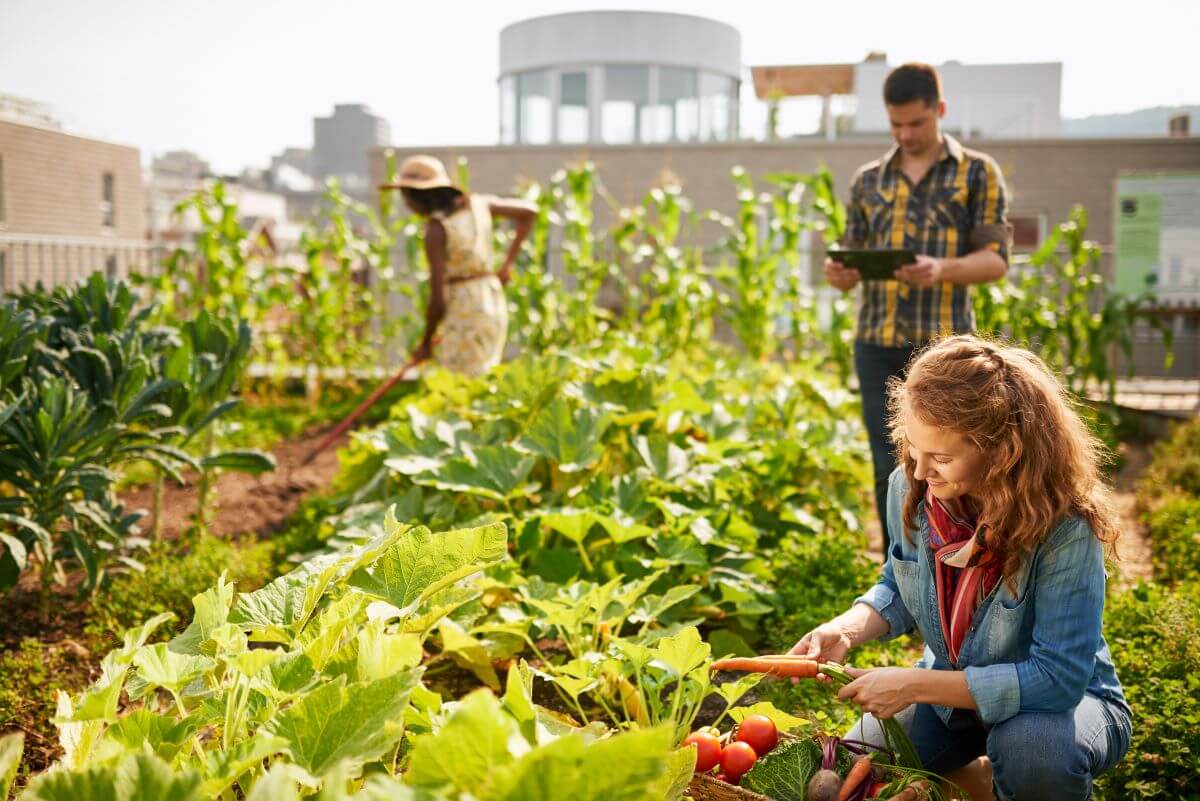YETRAC
Urban Agriculture: Cultivating Sustainable Cities
Urban Agriculture: Cultivating Sustainable Cities
Urban agriculture, an innovative response to the challenges of our rapidly urbanizing world, is changing the way cities interact with food production. This article explores the various forms of urban agriculture, its benefits, challenges, and how it plays a crucial role in cultivating sustainable cities.
Types of Urban Agriculture
1 Community Gardens
Community gardens are collaborative green spaces where residents come together to cultivate fruits, vegetables, and herbs. These gardens foster a sense of community, encourage gardening skills, and provide fresh produce to urban dwellers.
2 Rooftop Gardens
Rooftop gardens are a creative use of urban space. These green oases are often found atop apartment buildings and commercial structures, offering not only a source of fresh produce but also insulation benefits and improved air quality.
3 Vertical Farms
Vertical farms are high-tech, multi-story indoor facilities that use hydroponics and controlled environments to grow crops efficiently year-round. They are a sustainable solution to the challenges of space and seasonality.
4 Aquaponics Systems
Aquaponics systems combine aquaculture (raising fish) and hydroponics (growing plants in water) in a closed-loop system. These self-sustaining ecosystems produce both fish and vegetables with minimal waste.
Benefits of Urban Agriculture
1 Food Production and Security
Urban agriculture contributes to local food production, reducing the need for long-distance transportation. This enhances food security, especially in underserved urban areas where fresh, healthy food may be scarce.
2 Sustainability and Environmental Benefits
Urban farming promotes sustainability by emphasizing organic farming, efficient resource use, and lower carbon emissions due to shorter transportation distances. It also contributes to waste reduction through composting and recycling.
3 Community Engagement and Social Benefits
Community gardens and urban farms bring people together, fostering a sense of community ownership and providing opportunities for education and skill-building. Volunteers often play a vital role in these projects.
4 Economic Opportunities
Urban agriculture can create jobs related to farming, distribution, and processing, contributing to local economies. It provides an economic boost for urban areas and can empower residents.
5 Green Spaces and Urban Beautification
Urban agriculture transforms vacant lots into green, productive spaces. It enhances urban beautification, making cities more attractive and liveable.
6 Mitigating the Urban Heat Island Effect
The vegetation in urban farms and gardens helps mitigate the urban heat island effect, reducing temperatures in concrete jungles and improving overall urban climate.
Challenges and Considerations
1 Space Limitations
Urban areas often face space limitations, making it a challenge to find suitable locations for urban agriculture projects. Creative solutions, such as vertical farming and rooftop gardens, are addressing this constraint.
2 Soil Contamination
Soil contamination in urban areas can pose a risk to crops and food safety. Soil testing and remediation efforts are often required to ensure safe urban farming.
3 Access to Water Resources
Urban farms require access to water resources, which can be limited in cities. Efficient water management and innovative solutions like rainwater harvesting are essential.
4 Zoning and Regulatory Hurdles
Navigating complex zoning and regulatory frameworks is often a challenge for urban agriculture projects. Collaboration with local authorities and community support is crucial for overcoming these hurdles.
The Role of Policy and Government Support
Local governments play a vital role in supporting or hindering urban agriculture through policies and land-use regulations. In recent years, there has been a growing recognition of the need for policies that facilitate urban agriculture’s growth and sustainability.
Success Stories: Urban Agriculture Projects
Profiles of successful urban agriculture projects from around the world highlight the positive impacts these initiatives have on food production, community engagement, and environmental sustainability.
Future Prospects: Vertical Farming and Technology
The future of urban agriculture lies in technological advancements and innovative solutions like vertical farming, which could revolutionize food production in urban areas and increase year-round crop yields.
Urban agriculture offers a promising path toward sustainable cities. Through diverse forms of farming and innovative technologies, urban agriculture empowers communities, enhances food security, and creates greener, more resilient urban environments. Its role in the future of sustainable urban development is undeniable.

